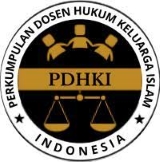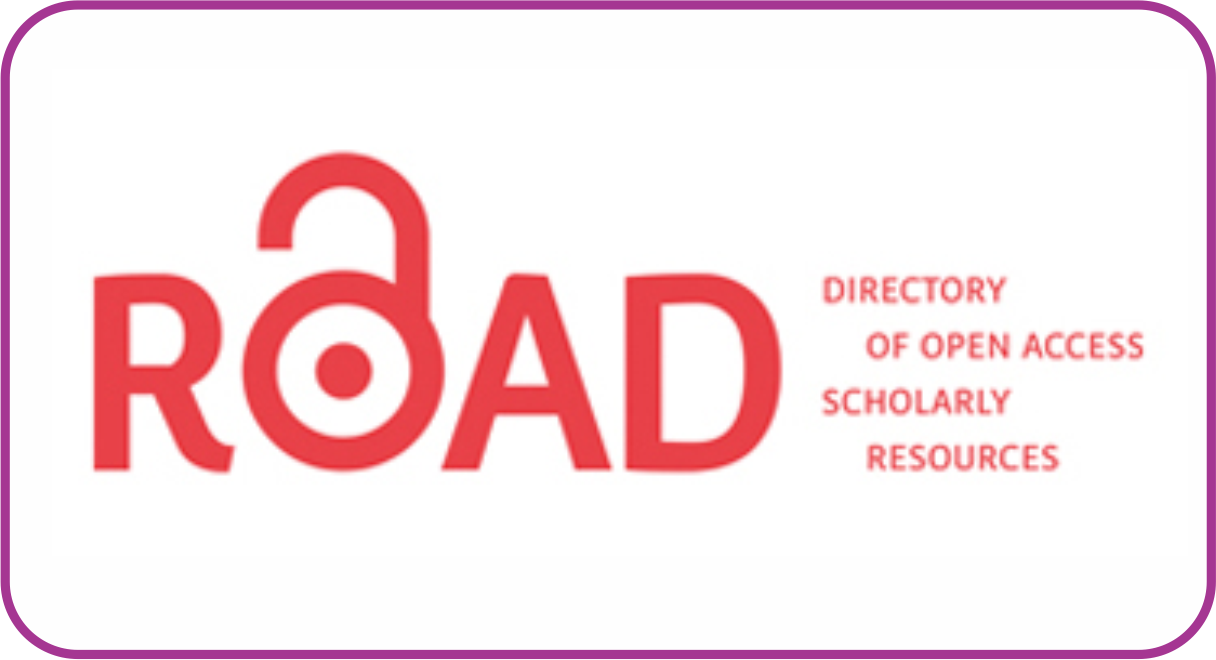SENGKETA PEMBATALAN HIBAH DI PENGADILAN AGAMA STABAT DITINJAU DARI MASLAHAH
Abstract
This study aims to examine the considerations of religious court judges in examining and deciding grant cancellation disputes. This study will analyze the decision of the Religious Court regarding the cancellation of grants in terms of maslahah. This study uses qualitative normative legal research. While the approach used is statutory and conceptual approach. The data sources used are primary data sources consisting of decisions from the Religious Courts, compilations of Islamic law, books of civil law laws, compilations of sharia economic laws. Meanwhile, secondary sources of law consist of books of Islamic jurisprudence, law books, and scientific journal articles. The results of this study indicate that the panel of judges examining cases of disputes over the cancellation of dominant gifts applies article 35 paragraph 1, article 36 paragraph I law number 1 of 1974 concerning joint assets and article 1338 of the civil law code concerning agreements/agreement, thus ignoring Article regarding the permissibility of withdrawing the grant object even though the grant is without the approval of other heirs. Meanwhile, according to the theory of maslahah initiated by al-Ghazali that the decisions of the Religious Courts made by the panel of judges are ideally to realize the concept of maqasid sharia, namely maintenance of property and offspring. Thus, it can avoid negative impacts that will occur in family relationships, such as the relationship between parents and their heirs. However, according to Hans Kelsen's theory of justice, the considerations made by judges in deciding cases of cancellation of grants tended to be inconsistent in the application of the applicable legal system, so that according to him, the intended sense of justice had not been fully fulfilled.
Keywords
Full Text:
PDFReferences
Abduh, Muhamad, and Tutik Hamidah. “Tinjauan Mashlahah Imam Al-Ghazali Terhadap Taklik Talak Dalam Hukum Positif Indonesia.” DIKTUM: Jurnal Syariah Dan Hukum 19, no. 2 (2021): 133–48. Adhani, Oktaviana, and Bagiyo Atmaja. “Keabsahan Pembatalan Hibah Akibat Pemberi Hibah Jatuh Miskin.” Jurnal Komunikasi Hukum (JKH) 6, no. 1 (2020): 95–103. Akbar, Patrialis. “Undang-Undang Nomor 48 Tahun 2009 Tentang Kekuasaan Kehakiman,” 2009. Alexander, Ongky. “Efektivitas Pembagian Harta Gono-Gini Pasca Perceraian Dalam Persfektif Yuridis Sosiologis.” El-Ghiroh: Jurnal Studi Keislaman 16, no. 01 (2019): 113–29. Ali, H Zainuddin. Filsafat Hukum. Sinar Grafika, 2023. Anshori, Abdul Ghofur. Filsafat Hukum Hibah Dan Wasiat Di Indonesia. UGM PRESS, 2018. Bashori, Dhofir Catur, and Miftahul Ichsan. “Pembatalan Hibah Oleh Pengadilan Agama.” HAKAM: Jurnal Kajian Hukum Islam Dan Hukum Ekonomi Islam 5, no. 1 (2021). ———. “Pembatalan Hibah Oleh Pengadilan Agama.” HAKAM: Jurnal Kajian Hukum Islam Dan Hukum Ekonomi Islam 5, no. 1 (2021). Benuf, Kornelius, and Muhamad Azhar. “Metodologi Penelitian Hukum Sebagai Instrumen Mengurai Permasalahan Hukum Kontemporer.” Gema Keadilan 7, no. 1 (2020): 20–33. Budify, Alyatama, Jelitamon Ayu Lestari Manurung, and Satria Braja Hariandja. “Pembatalan Akta Hibah Di Pengadilan Negeri Pematangsiantar: Kajian Putusan Nomor 33/Pdt. G/2019/PN. Pms.” SIGn Jurnal Hukum 2, no. 1 (2020): 72–85. Hannifa, Vaula Surya, Johni Najwan, and M Amin Qodri. “Hak Waris Anak Angkat Dalam Perspektif Kompilasi Hukum Islam Indonesia.” Zaaken: Journal of Civil and Business Law 3, no. 1 (2022): 34–48. Hariyanto, Budi. “Tinjauan Yuridis Terhadap Pembagian Harta Waris Beda Agama Menurut Kitab Undang Undang Hukum Perdata (Kuh Perdata) Dan Kompilasi Hukum Islam (KHI).” IUS: Jurnal Ilmiah Fakultas Hukum 8, no. 2 (2020): 28– 42. Hidayat, Asep Dadang, Mulyadi Mulyadi, Senki Nurachmadi, N Irfan, and Aufa Aufa. “PEMBATALAN AKTA HIBAH DALAM PERSPEKTIF IMAM MADZHAB.” Al-Mashlahah Jurnal Hukum Islam Dan Pranata Sosial 10, no. 001 (2022): 51–64. Ibrahim, Zumiyati Sanu. “Implikasi Pembatalan Hibah (Suatu Tinjauan Hukum Islam).” Jurnal Al Himayah 5, no. 2 (2021): 132–46. INDONESIA, UNDANG-UNDANG REPUBLIK. “Undang-Undang Nomor 3 Tahun 2006 Tentang Peradilan Agama,” 2006. Indriyani, Irma. “Pengaruh Aliran Hukum Positivisme Dan Rasa Keadilan Di Indonesia.” AHKAM 1, no. 1 (2022): 193–204. Izzah, Nurul Aqidatul, Saharuddin Saharuddin, and Bakhtiar Tijjang. “Legitime Portie Dalam Pemberian Hibah Wasiat.” Jurnal Litigasi Amsir 9, no. 2 (2022): 146– 57. Mu’minin, Muhammad Shofwanul. “Konflik Keluarga Akibat Pembagian ‘Harta Waris’ Dengan Hibah Perspektif Kompilasi Hukum Islam.” Sakina: Journal of Family Studies 4, no. 3 (2020). Muttaqin, Elfran Bima, and Andi Aspiani Eka. “Hukum Pembatalan Hibah Dari Orang Tua Kepada Anaknya.” Paulus Law Journal 1, no. 1 (2019): 30–39. Muzhdalifah, Imelda Aulia. “Pembatalan Akta Hibah Berdasarkan Akta Ppat Dari Mertua Kepada Menantu (Studi Putusan Pengadilan Agama Nomor 50/PDT. G/2020/PA. KUPANG).” Indonesian Notary 4, no. 2 (n.d.): 22. Nugroho, Sigit Sapto, and M SH. Sukma Hukum Keadilan Berhati Nurani. uwais inspirasi indonesia, 2019. Nursandi, N, I Nyoman Putu Budiartha, and Ni Gusti Ketut Sri Astiti. “Akibat Hukum Perjanjian Pemberian Hibah Tanah Kepada Anak Angkat Yang Dibuat Dihadapan Pejabat Pembuat Akta Tanah (PPAT) Menurut Kuh Perdata.” Jurnal Analogi Hukum 4, no. 3 (2022): 271–76. Over, Implications Of Marad Al-Mawt, and Hibah Agreement. “Implikasi Marad Al- Mawt Ke Atas Akad Hibah.” Journal of Contemporary Islamic Law 5, no. 2 (2020): 22–28. Rahim, Nasrullah Abdul, Muhammad Amar Adly, and Akmaluddin Syahputra. “Studi Pandangan Hakim Pengadilan Tinggi Agama Medan Terhadap Fatwa MUI Sumut Tentang Istbat Talak Di Luar Sidang Pengadilan Agama.” Al- Mashlahah Jurnal Hukum Islam Dan Pranata Sosial 10, no. 01 (2022): 239– 56.
DOI: https://doi.org/10.24952/almaqasid.v10i1.9807
Refbacks
- There are currently no refbacks.
Copyright (c) 2024 Jurnal AL-MAQASID: Jurnal Ilmu Kesyariahan dan Keperdataan

This work is licensed under a Creative Commons Attribution-ShareAlike 4.0 International License.



2.gif)


















